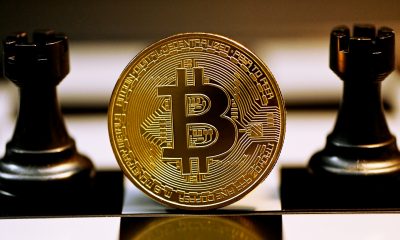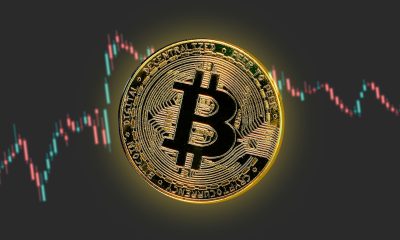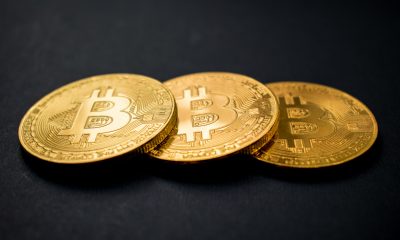Crypto
Faced with the Crisis, People in Venezuela Turn Bitcoin into Their Best Ally
With hyperinflation and devaluation of Venezuela’s bolivar, many turned to Bitcoin as a safeguard against collapsing salaries and savings. Bitcoin’s decentralized nature provided protection from government control. As dollarization and other currencies take over daily transactions, Bitcoin still holds appeal, with proposals to use it in Venezuela’s economy, similar to El Salvador’s approach.

Venezuela’s rate of hyperinflation has been recorded as the worst in Latin American history. For years, hopelessness reigned in the country, until Bitcoin (BTC) emerged as a viable alternative for many, offering Venezuelans not only a means to survive, but also an open door to new opportunities.
The International Monetary Fund (IMF) projected inflation of 5,500% for 2021, and by then the country had already been in crisis for several years due to the exaggerated growth of the external debt without control since 2007, as well as the injection of inorganic money into the Venezuelan economy, as reflected in Wikipedia.
The statistics are alarming for an oil-producing country. Now, “Venezuela is the second poorest and most unequal country in Latin America,” according to several media outlets.
With hyperinflation and devaluation impacting the bolivar, the national currency, people’s salaries and savings collapsed in a matter of days. And in this context, many Venezuelans began to seek refuge in assets that were not subject to the whims of the State, and that is how Bitcoin presented itself as an attractive option.
Bitcoin is an asset that operates on a decentralized network, meaning it is not under the direct control of any government, central bank, or tax authority. For this reason, governments cannot use this digital currency to issue it at will, as is the case with fiat money.
So much so that in 2019, Venezuela recorded the second-highest volume of global trading on the now-defunct LocalBitcoins platform. At the time, data indicated that Bitcoin was the best hedge against inflation for Venezuelans.
Bitcoin showed Venezuelans that it was the best asset available to them to preserve their capital. This was because it gave them access to a more stable financial system, being less susceptible to government manipulation.
Bitcoin adoption in Venezuela was highlighted in Chainalysis’ 2021 report. Source: Chainalysis.
As the government generated more unbacked money, the use of bitcoin became more and more common. The currency created by Satoshi Nakamoto also emerged as a solution for transferring money from abroad , paying for goods and services, and even making purchases of basic products.
For many, this change not only represented a way to maintain savings , but also an opportunity to participate in a digital economy that seemed much more stable compared to the chaotic reality of their country.
Bitcoin resonates as a lifeline for Venezuela
After the hyperinflationary outbreak, the aftershocks of the crisis persist in daily life, with a structural distrust of the bolivar. Venezuelans continue to search for the best alternatives to preserve their savings, and now the panorama is becoming multi-currency, according to a study by the firm Ecoanalítica.
With the consolidation of a de facto dollarization for regular transactions, the displacement of the bolivar reached deep levels in some areas. Now “the dollar occupies 32.7% of transactions, the Colombian peso 5.7%, the euro 5.5% and cryptocurrencies and others barely 1.2%”, according to the analysis up to February 2024.
However, Bitcoin remains on the radar of many Venezuelans, even more so now that opposition leader Maria Corina Machado has proposed bitcoin reserves to save Venezuela’s economy.
A similar proposal was also put forward by Donald Trump as a candidate for the upcoming US presidential election. The idea is to follow in the footsteps of El Salvador, a country that is boosting the appreciation of its BTC reserves.
Likewise, with the price of bitcoin on the rise, Venezuela’s national reserves could gain significant value in the long term, offering a potential source of income.
And just as it has worked for El Salvador, Venezuela can also attract foreign investment and promote an economy based on digital currency, turning the country into a new center of innovation in the region.
__
(Featured image by Anderele via Pixabay)
DISCLAIMER: This article was written by a third party contributor and does not reflect the opinion of Born2Invest, its management, staff or its associates. Please review our disclaimer for more information.
This article may include forward-looking statements. These forward-looking statements generally are identified by the words “believe,” “project,” “estimate,” “become,” “plan,” “will,” and similar expressions. These forward-looking statements involve known and unknown risks as well as uncertainties, including those discussed in the following cautionary statements and elsewhere in this article and on this site. Although the Company may believe that its expectations are based on reasonable assumptions, the actual results that the Company may achieve may differ materially from any forward-looking statements, which reflect the opinions of the management of the Company only as of the date hereof. Additionally, please make sure to read these important disclosures.
First published in CRIPTONOTICIAS. A third-party contributor translated and adapted the article from the original. In case of discrepancy, the original will prevail.
Although we made reasonable efforts to provide accurate translations, some parts may be incorrect. Born2Invest assumes no responsibility for errors, omissions or ambiguities in the translations provided on this website. Any person or entity relying on translated content does so at their own risk. Born2Invest is not responsible for losses caused by such reliance on the accuracy or reliability of translated information. If you wish to report an error or inaccuracy in the translation, we encourage you to contact us

-

 Cannabis2 weeks ago
Cannabis2 weeks agoKONOPEX Expo 2026: Celebrating Europe’s New Era of Legal Cannabis
-

 Biotech1 day ago
Biotech1 day agoVolatile Outlook for Enlivex Therapeutics as Investors Await Clinical Catalysts
-

 Impact Investing1 week ago
Impact Investing1 week agoInter IKEA Launches Electric Truck Fleet to Decarbonize Heavy-Duty Logistics in Italy
-

 Markets4 days ago
Markets4 days agoCotton Market Weakens Amid Demand Concerns and Bearish Trends
























